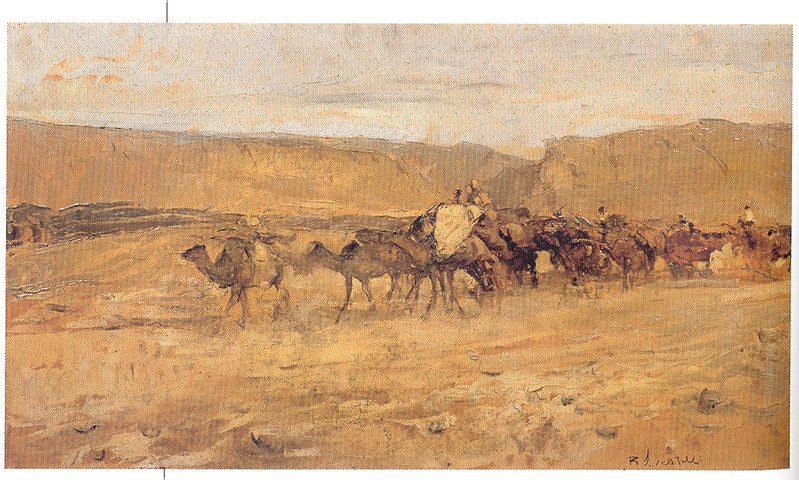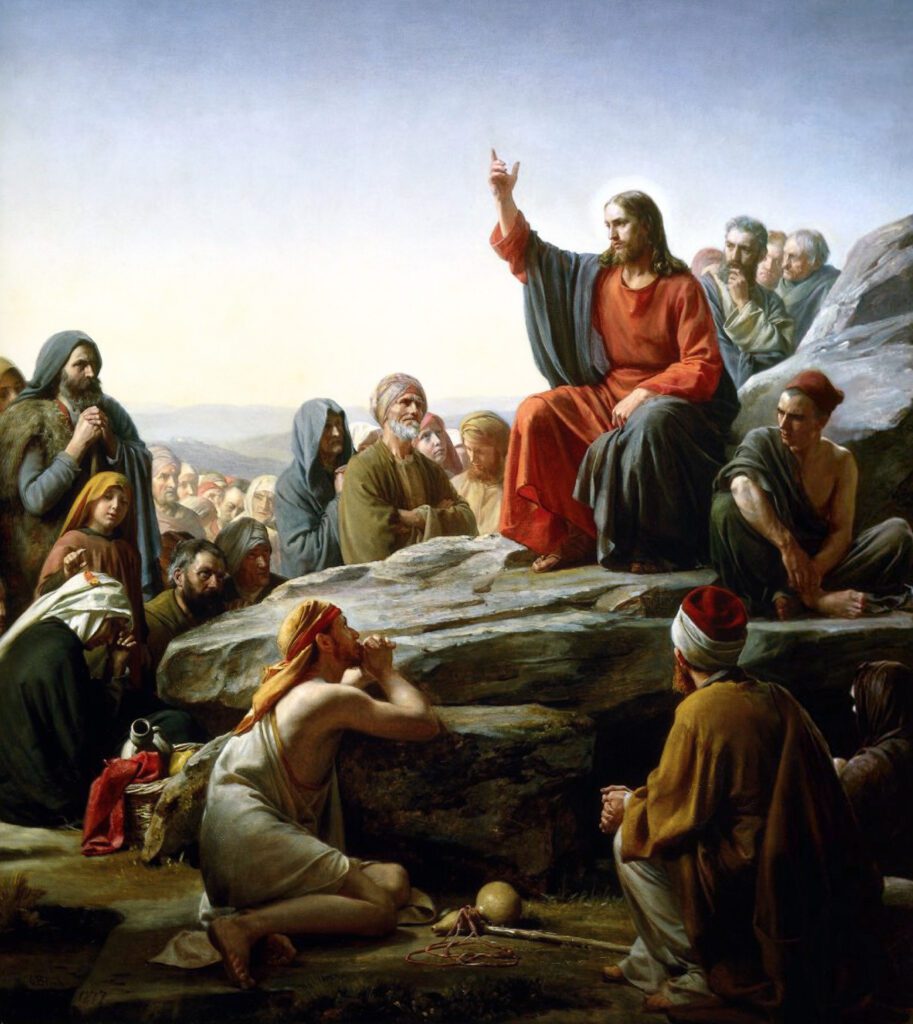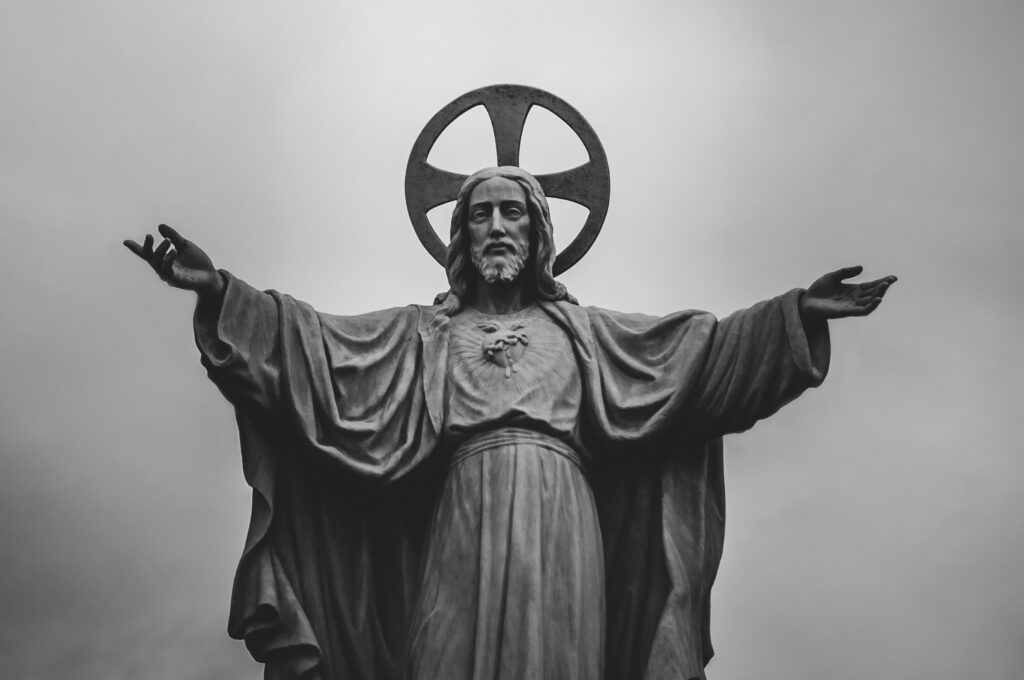
Today’s Gospel theme is a familiar one. Framed in mercy, Jesus tells us to stop judging. He uses a clear directive: Stop. It is a word that conveys an urgency, a need. Something must cease immediately.
It is probably natural to take Jesus’ words and apply them as an examination of conscience. How have we fallen short in the call to be merciful to others? How have we judged wrongly, condemned harshly? But, perhaps today we could consider a different angle.
Often it can appear that we are guilty of projecting onto others what, in fact, we are harshly imposing on ourselves. And it is very hard to cease doing unto another what we unceasingly do to ourselves. Maybe today, then, we let ourselves be the object of Jesus’ words.
Let’s imagine Jesus directing his words to us. And let us imagine that He is speaking with a very tender, patient tone. It might sound something like this: “Beloved, Please stop judging yourself. You are not a just judge. I am. So, please stop. Please stop condemning yourself. That is a trap. I did not come to condemn you, I came to free you, to save you. So, please stop. And, please forgive yourself for falling short. I have already forgiven you. I love you. You can forgive yourself.
Finally, I ask you to be merciful to yourself, just as the Father, who always shows mercy, is merciful to you. Why deny to yourself what your Father is so freely offering you?”
It’s easy to want to “work out” our relationships with others, but maybe the first relationship to consider is the one we have with ourselves. Invite Jesus to help you there. Let His words direct you today to pour out a good measure upon your own tender human heart.
El tema del Evangelio de hoy es conocido. Enmarcado en la misericordia, Jesús nos dice que dejemos de juzgar. Nos da una orden clara: “No juzguen…no condenen…” No es una palabra que transmite urgencia, necesidad. Algo debe cesar de inmediato.
Es natural que tomemos las palabras de Jesús y las apliquemos como un examen de conciencia. ¿En qué hemos fallado en el llamado a ser misericordiosos con los demás? ¿En qué hemos juzgado mal, en qué hemos condenado con dureza? Pero quizás hoy podríamos considerar una perspectiva diferente.
A menudo parece que proyectamos en los demás lo que, en realidad, nos imponemos con dureza a nosotros mismos. Y es muy difícil dejar de hacer a otros lo que constantemente nos hacemos a nosotros mismos. Quizás hoy, entonces, nos permitamos ser el objeto de las palabras de Jesús.
Imaginemos a Jesús dirigiéndose a nosotros. E imaginemos que nos habla con un tono muy tierno y paciente. Podría sonar algo así: “Amado, por favor, deja de juzgarte. Tú no eres un juez justo. Yo lo soy. Así que, por favor, para. Por favor, deja de condenarte. Eso es una trampa. No vine a condenarte, vine a liberarte, a salvarte. Así que, por favor, para. Y, por favor, perdónate por tus fallos. Yo ya te he perdonado. Te amo. Tú puedes perdonarte. Finalmente, te pido que seas misericordioso contigo mismo, así como el Padre, que siempre muestra misericordia, es misericordioso contigo. ¿Por qué negarte a ti mismo lo que tu Padre te ofrece tan generosamente?”
Es fácil querer “arreglar” nuestras relaciones con los demás, pero quizás la primera relación que debemos considerar es la que tenemos con nosotros mismos. Invita a Jesús a que te ayude en eso. Deja que sus palabras te guíen hoy para derramar una buena medida sobre tu propio corazón humano tan sensible.
 Raine Pyne is a longtime public school educator. She is married to Greg, who is also an educator. They have five sons, three dogs, and one cat, plus hundreds of adolescent students and countless stacks of books. Raine is a former parish catechist and women’s retreat leader. She is a student at the Theology of the Body Institute and a member of the Word on Fire Institute’s Writing Community. She is passionate about learning, language, and the ever deepening journey of faith.
Raine Pyne is a longtime public school educator. She is married to Greg, who is also an educator. They have five sons, three dogs, and one cat, plus hundreds of adolescent students and countless stacks of books. Raine is a former parish catechist and women’s retreat leader. She is a student at the Theology of the Body Institute and a member of the Word on Fire Institute’s Writing Community. She is passionate about learning, language, and the ever deepening journey of faith.
Feature Image Credit: Florence E. Hay, art.diocesan.com/stock-photo/went-forth-to-meet-his-long-lost-son-22970/
The views and opinions expressed in the Inspiration Daily blog are solely those of the original authors and contributors. These views and opinions do not necessarily represent those of Diocesan, the Diocesan staff, or other contributors to this blog.
Daily Reading
Monday of the Second Week of Lent
Reading 1 Daniel 9:4b-10 “Lord, great and awesome God,you who keep your merciful covenant toward those who love youand observe your commandments!We have sinned, been wicked and done evil;we have…
Saint of the Day
Pope Saint Simplicius
Pope Saint Simplicius navigated the fall of the Western Roman Empire, defended Chalcedon’s decisions, and fought to preserve Rome’s influence and aid Italy during barbarian incursions. The post Pope Saint





 David Dashiell is a freelance author, editor, and publisher in Hawaii. He has three children, a degree in theology, and enjoys writing poetry and discussing philosophy, culture, music, theology, and comedy. You can find his poetry blog, Poems at Twilight, on
David Dashiell is a freelance author, editor, and publisher in Hawaii. He has three children, a degree in theology, and enjoys writing poetry and discussing philosophy, culture, music, theology, and comedy. You can find his poetry blog, Poems at Twilight, on 


 Felix Urcia was born in Lima, Peru. He moved the U.S. to complete his college degree in Computer Science at Northern Kentucky University. He is passionate about his faith, his family, education and soccer. When he is not homeschooling and caring for his young children he enjoys personal programing projects and sports analysis. He and wife live in a small town in Western Michigan where they enjoy spending time with their five children.
Felix Urcia was born in Lima, Peru. He moved the U.S. to complete his college degree in Computer Science at Northern Kentucky University. He is passionate about his faith, his family, education and soccer. When he is not homeschooling and caring for his young children he enjoys personal programing projects and sports analysis. He and wife live in a small town in Western Michigan where they enjoy spending time with their five children.



 Mike Karpus is a regular guy. He grew up in Michigan’s Upper Peninsula, graduated from Michigan State University and works as an editor. He is married to a retired Catholic school principal, raised two daughters who became Catholic school teachers at points in their careers, and now relishes his three young grandchildren. He serves on a Catholic school board and has served on pastoral councils, a building committee and a parish stewardship committee. He currently is a lector at Mass, a Knight of Columbus, vice president of a memorial scholarship committee and a board member of the local Habitat for Humanity organization. But mostly he’s a regular guy.
Mike Karpus is a regular guy. He grew up in Michigan’s Upper Peninsula, graduated from Michigan State University and works as an editor. He is married to a retired Catholic school principal, raised two daughters who became Catholic school teachers at points in their careers, and now relishes his three young grandchildren. He serves on a Catholic school board and has served on pastoral councils, a building committee and a parish stewardship committee. He currently is a lector at Mass, a Knight of Columbus, vice president of a memorial scholarship committee and a board member of the local Habitat for Humanity organization. But mostly he’s a regular guy.





 Merridith Frediani loves words and is delighted by good sentences. She also loves Lake Michigan, dahlias, the first sip of hot coffee in the morning, millennials, and playing Sheepshead with her husband and three kids. She writes for Catholic Mom, new.diocesan.com/, and her local Catholic Herald. Her first book Draw Close to Jesus: A Woman’s Guide to Adoration is available at Our Sunday Visitor and Amazon. You can learn more at
Merridith Frediani loves words and is delighted by good sentences. She also loves Lake Michigan, dahlias, the first sip of hot coffee in the morning, millennials, and playing Sheepshead with her husband and three kids. She writes for Catholic Mom, new.diocesan.com/, and her local Catholic Herald. Her first book Draw Close to Jesus: A Woman’s Guide to Adoration is available at Our Sunday Visitor and Amazon. You can learn more at 
 Charlene Unterkofler is a Catholic convert who nurtures her spiritual growth by serving the poor in the Society of St. Vincent de Paul and guiding the formation of other Vincentians through her writing and workshops. She co-authored “Cloud of Witnesses, 25 Stories of Saintly Inspiration and Intercession,” with the PraiseWriters community. She enjoys playing cribbage with her husband and reading to her grandsons. Discover more at
Charlene Unterkofler is a Catholic convert who nurtures her spiritual growth by serving the poor in the Society of St. Vincent de Paul and guiding the formation of other Vincentians through her writing and workshops. She co-authored “Cloud of Witnesses, 25 Stories of Saintly Inspiration and Intercession,” with the PraiseWriters community. She enjoys playing cribbage with her husband and reading to her grandsons. Discover more at